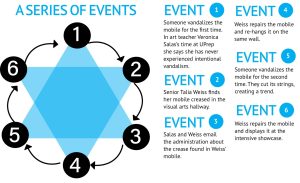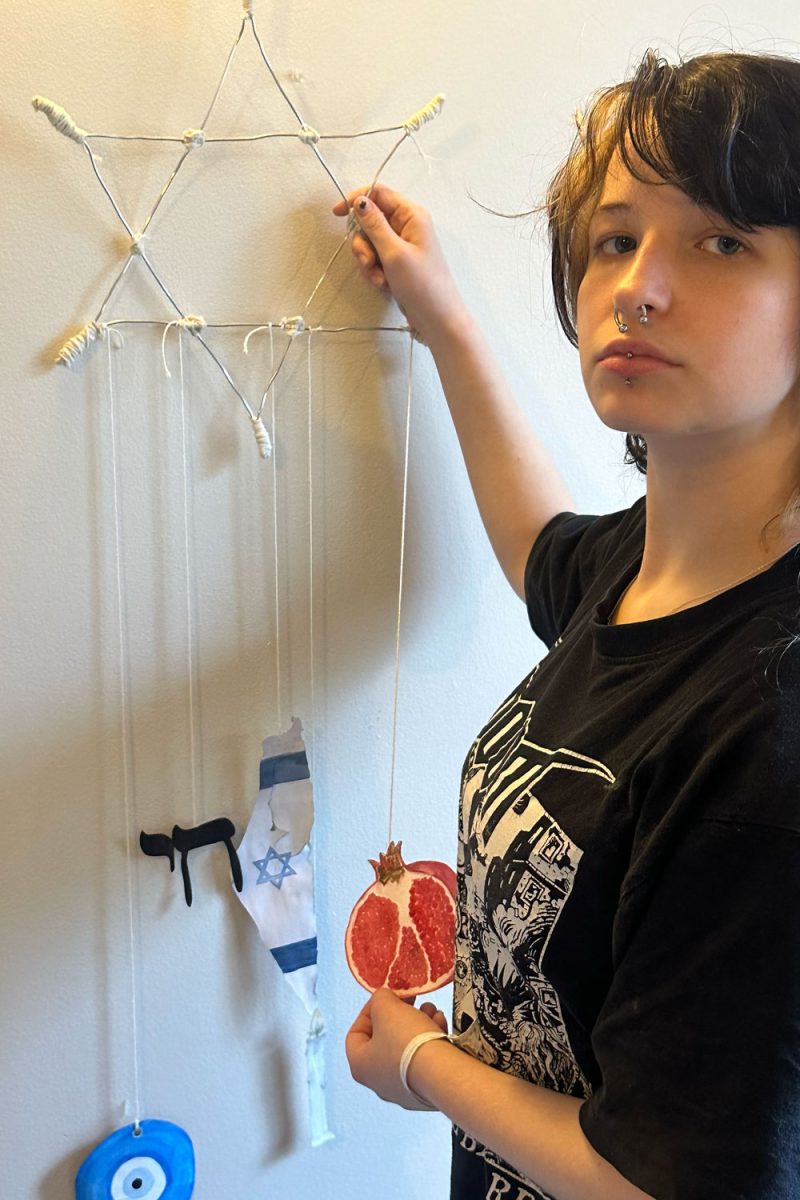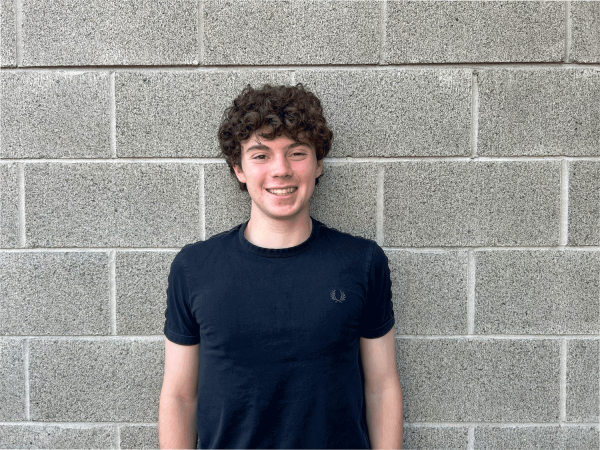During the recent winter intensive, a Jewish inspired mobile was vandalized. Its strings, which held Jewish symbols, were cut and creased.
The mobile showcased a Nazar amulet symbolizing protection from evil, a pomegranate symbolizing life, a candle for morning and a map of Israel with Israel’s flag.
Someone vandalized the mobile twice. The first time, they creased the map of Israel and the second time, they cut two symbols from the star of David that held them. These two incidents happened within two days of each other. Senior Talia Weiss’ created the mobile to reflect her Jewish ancestry and culture.
“After the Oct. 7 attack in Israel, I felt compelled to express myself and my feelings toward my Jewish identity,” Weiss said. “I visited Israel this summer, so I definitely felt a deeper connection to the country. And I wanted to express my proud feeling about my heritage.”
Visual art teacher Veronica Salas thought Weiss’ mobile was a beautiful work of art, but more importantly, it was meaningful.
“[Art] is supposed to drive a conversation,” Salas said. “I think if you see something that might make you question your world, that’s a good thing. You should question your world. You should speak to people with opposing views. You should develop a broader idea of the truth that exists in the world because we never see the whole 360. Art is a stepping stone in that process.”
When Salas found Weiss’ art destroyed, she immediately took it down to store it safely in her office. However, Weiss and Salas decided to display the mobile in the winter intensive showcase.
“Don’t hide away and quit just because something happened,” Salas said. “Those situations should be treated as an opportunity rather than defeat. I think that’s one of the most powerful things you could do.”
In UPrep’s handbook there are guidelines for addressing incidents involving religious, racial and LGBTQ+ identities. Director of the Upper School Susie Wu knows that action from the administration is vital.
“We need to be very clear about where we stand,” Wu said. “Values are important when they come into crisis, and we need to be able to stand by them. We need to come out strong when these things happen.”
Wu and the administration reinforced this with an email they sent out to the community on Feb. 5.
“UPrep reaffirms our values of belonging and inclusion and reinforces our stance that this is a school in which all of our members, especially in this case our Jewish community members, are safe,” Wu said in the email to the upper school.
Despite this, Weiss says antisemitism is no longer shocking, even in the UPrep community.
“I obviously was upset, but I honestly didn’t really expect any better from the general community or population,” Weiss said. “It’s sad to me that I live in a world where people are so standoffish towards Jews. But I’m not really surprised by antisemitism anymore just because it’s so prominent.”
According to the Anti-Defamation League, from 2022 to 2023 antisemitic incidents have increased by 337 percent.
Other Jewish students corroborate Weiss’ experience and this statistic of the antisemitic struggle. Co-leader of Jewish Culture Appreciation Club Jeremy Bollag believes that the conflict between Israel and Gaza is a driving force of antisemitism, especially in schools.
“We have been aware of antisemitism at the school even dating back to my seventh grade year, but I know that recently there has been a big rise on college and school campuses,” Bollag said.
Combating antisemitism and hate in general is not straightforward, but student groups such as the Jewish Culture Appreciation Club are a way to create a strong and supportive community.
“We try to always keep an open space for anyone who wants to talk because it is not comfortable to be in a space that doesn’t feel welcome,” Bollag said.
“All forms of hate are important to combat against,” Weiss said. “I would like to see more of the administration in contact with affinity groups to make a better place for them on campus.”



